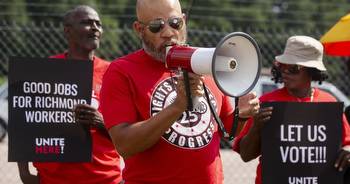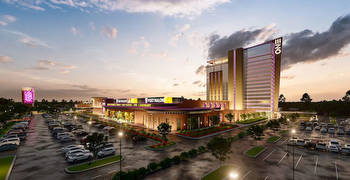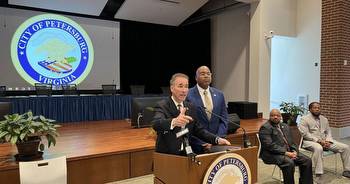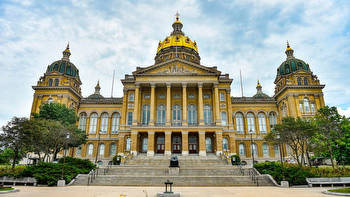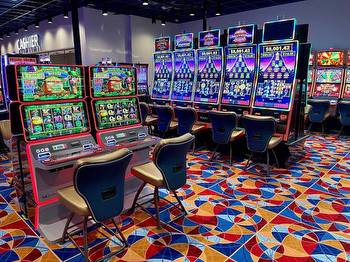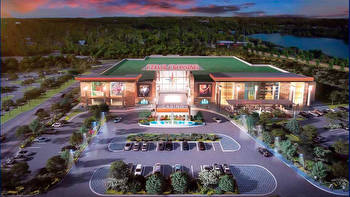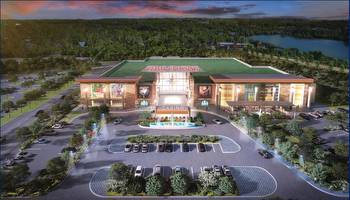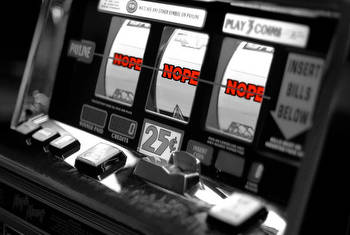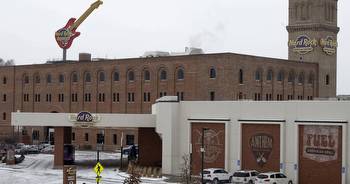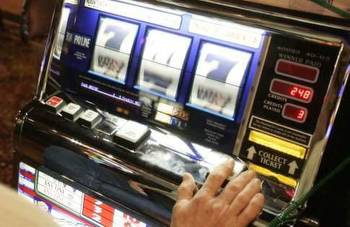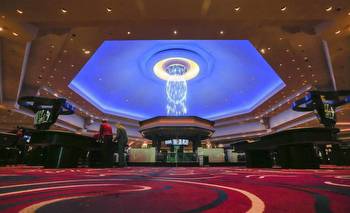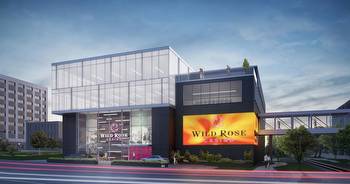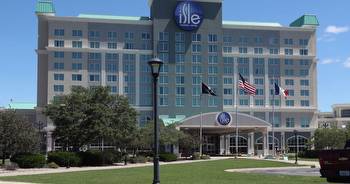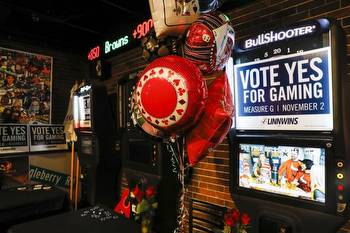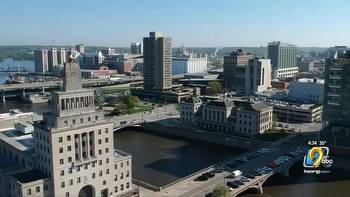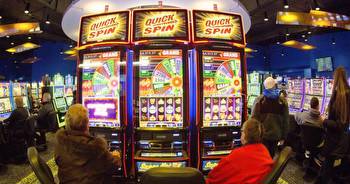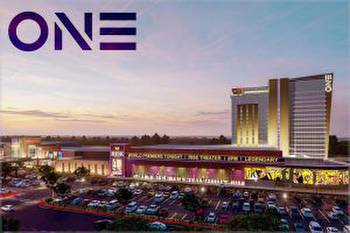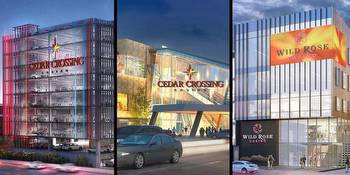As casino backers look to pass Linn County gaming referendum, potential location uncertain

The three Cedar Rapids casino proposals to be considered by state regulators include (from left) Cedar Crossing 2.0, Cedar Crossing 1.0 and Wild Rose. (renderings provided by casino development groups)
CEDAR RAPIDS — When voters cast their ballots in the Nov. 2 local elections, they’ll have the option of backing a measure to keep the door open for a Linn County community to seek permission from the state to operate a licensed casino.
Where would a gaming facility be built, should voters approve the measure and Cedar Rapids successfully leap the tall hurdle of getting approval from the Iowa Racing and Gaming Commission for another casino in the state? The likely developer says multiple locations have been explored but nothing is set in stone yet.
This is a key difference in the upcoming vote compared with 2013, when over 61 percent of Linn County voters first passed a gaming referendum. Investors have not yet put forth a proposal for a potential casino this time; but eight years ago, some possibilities had already emerged before the vote.
If voters pass the referendum again, Cedar Rapids — or any city in Linn County — could apply in perpetuity for a license from the Iowa Racing and Gaming Commission, the five-member regulatory panel. The matter would never come before voters again.
But the Cedar Rapids area will face a challenge in persuading the panel to award another license. Regulators in 2014 and 2017 dashed City Hall’s hopes of seeing a casino here. They denied proposals out of concern one would “cannibalize” the market.
Should a proposal ever move forward, the city of Cedar Rapids has an agreement with the Cedar Rapids Development Group, which is made up of mostly local investors, through October 2029 for the city to exclusively support this group in an application.
Jonathan Swain, president of Peninsula Pacific Entertainment, which would be the casino operator, said here has been no decision on a location or an architect.
“The first thing is this referendum and that guarantees us the opportunity, and that's what we're really focused on,” Swain said.
Location possibilities
Having worked on bringing to life the Diamond Jo Casino in Dubuque, Swain said he has seen the possibilities of economic development by having such a tourist attraction downtown. The key objective is to build a casino downtown, he said.
In The Gazette’s Sept. 30 mayoral candidate forum, Mayor Brad Hart mentioned downtown, NewBo or Czech Village as the primary areas for a potential casino. Specifically, he mentioned city officials and developers had explored the possibility of the site of now-demolished Cooper’s Mill and the former Farmstead site. He also told The Gazette Lot 44 in NewBo was in consideration.
Swain said developers had pitched the idea of building a casino at the downtown Cedar Rapids site of the city-owned DoubleTree by Hilton hotel.
While the idea of selling the hotel has come up over the years as Moody’s bond ratings service has dinged the city for owning a hotel as a credit risk, Hart said Cedar Rapids City Council members were firmly against a proposal to turn the hotel and convention complex into a casino when it was previously discussed months ago.
Theoretically, it also is possible developers — whether from the Cedar Rapids Development Group or another entity — could hunt for a location elsewhere in Linn County. But Swain said “we're going to exhaust all opportunities to put it in the city of Cedar Rapids.”
Swain said he anticipates a proposal would be ready to come before the commission within 12 months of the referendum’s passage. Before bringing a proposal forward, developers also would factor in the findings of a socioeconomic and market impact study that the state commission hired a firm to conduct. Those findings are expected to be shared in the coming months.
“At some point along the process, because it is a quite an expensive and lengthy process, we would want to see some signaling from the commission that they’re open to the idea,” Swain said.
‘Grow and thrive’
Swain and other casino backers remain hopeful about the potential for a brick-and-mortar casino in Iowa’s second-largest city. Supporters point to expansions of gaming in the bordering states of Nebraska and Illinois as reason the Iowa commission would now support a casino in Cedar Rapids as a way to keep more revenue in the state.
Plus, there is an entirely new slate of members on the five-person state commission compared with when Cedar Rapids was denied a license.
Some are skeptical of the need for a physical facility given the rise of online sports betting in Iowa. But Swain said casino backers believe the benefits of tourism, economic development and job creation “don't happen when someone is playing slots on the phone.”
“We think that the opportunity's still is strong to build a large facility here in Cedar Rapids,” Swain said.
Should plans take shape to develop a local casino, the Cedar Rapids Development Group said Tuesday it has signed a deal with the Cedar Rapids/Iowa City Building and Construction Trades Council outlining the intention to enter a project labor agreement.
Council President Mike Sadler, who signed the agreement, said in a statement that a casino would “bring construction work for local tradesmen and women,” as well as drive economic development and job growth.
In September, Peninsula Pacific Entertainment and the Linn County Gaming Association announced area not-for-profit organizations would receive 8 percent of net revenue from any casino in Linn County — over double the 3 percent required by the state.
According to Iowa Gaming Association data from 2019 — the most recent year not affected by COVID-19 — the 15 Iowa counties with casinos distributed over $95 million, or an average of $6.3 million per county annually. By comparison, about $140,000 was distributed to each of the 84 counties without a casino through community foundations.
Anne Parmley, president of the not-for-profit county gaming association, said this contribution commitment helps people understand the potential impact of a casino.
“A lot of people want to see Cedar Rapids grow and thrive, and this is a key opportunity for us to be able to do that,” Parmley said.








